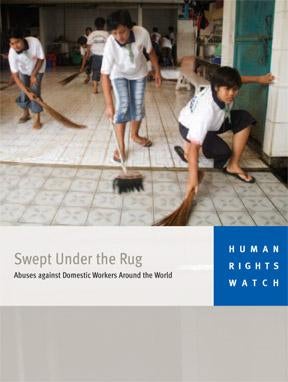“Our Happy Family Is Gone”
Impact of the “War on Drugs” on Children in the Philippines


Impact of the “War on Drugs” on Children in the Philippines


This report documents the range of abuses against lesbian, gay, bisexual, and transgender (LGBT) students in secondary school. It details widespread bullying and harassment, discriminatory policies and practices, and an absence of supportive resources that undermine the right to education under international law and put LGBT youth at risk.
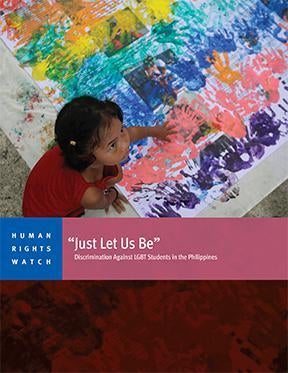
This report found that the Philippine National Police have repeatedly carried out extrajudicial killings of drug suspects, and then falsely claimed self-defense. They plant guns, spent ammunition, and drug packets on their victims’ bodies to implicate them in drug activities. Masked gunmen taking part in killings appeared to be working closely with the police, casting doubt on government claims that the majority of killings have been committed by vigilantes or rival drug gangs. In several instances that Human Rights Watch investigated, suspects in police custody were later found dead and classified by police as “found bodies” or “deaths under investigation.” No one has been meaningfully investigated, let alone prosecuted, for any of the “drug war” killings.
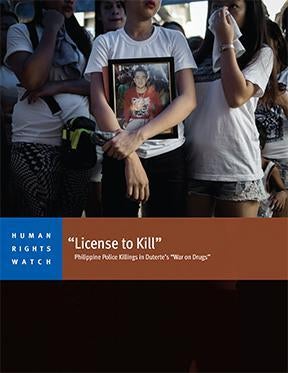
This report documents the failure of national and local governments in the Philippines to address the growing HIV prevalence among men who have sex with men.
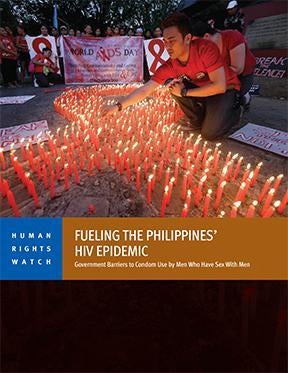
This 39-page report documents how thousands of Filipino children – some just 9 years old – work in illegal, small-scale gold mines, mostly financed by local businessmen. Children work in unstable 25-meter-deep pits or underwater along the coastal shore or in rivers, and process gold with mercury, a toxic metal. In September 2014, a 17-year-old boy suffocated in an underground mine because there was no machine providing oxygen. The Philippine government should act on its public commitment to end child labor in mining, Human Rights Watch said.
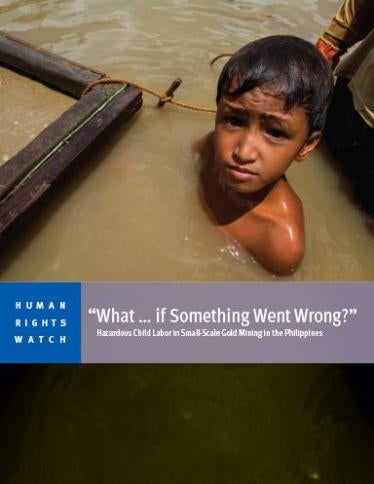
The 71-page report details the involvement of local government officials – including Tagum City’s former mayor, Rey “Chiong” Uy – and police officers in the extrajudicial killings of alleged drug dealers, petty criminals, street children, and others over the past decade.

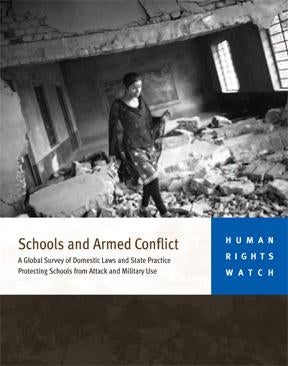
This 96-page report details strong evidence of military involvement in seven killings and three enforced disappearances of leftist activists since President Benigno Aquino III took office on June 30, 2010.
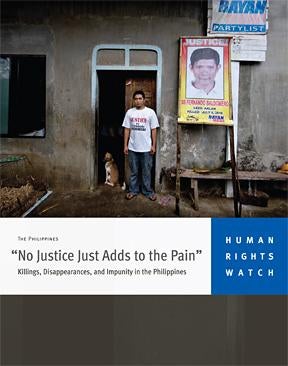
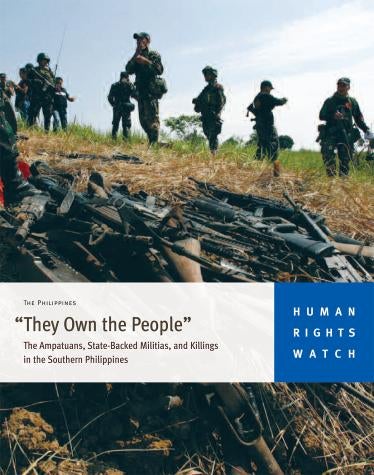
This 97-page report describes how workers become trapped in exploitative or abusive employment then face criminal penalties for leaving a job without the employer’s permission. Government authorities arrest workers reported as “absconding” and in most cases deport them from Kuwait – even if they have been abused and seek redress.
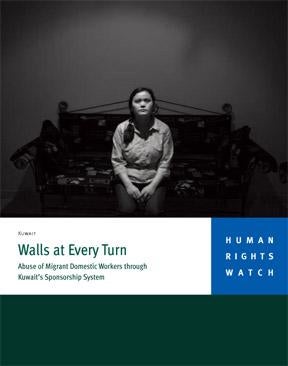
This 26-page report reviews conditions in eight countries with large numbers of migrant domestic workers: Lebanon, Jordan, Saudi Arabia, Kuwait, the United Arab Emirates, Bahrain, Singapore, and Malaysia.
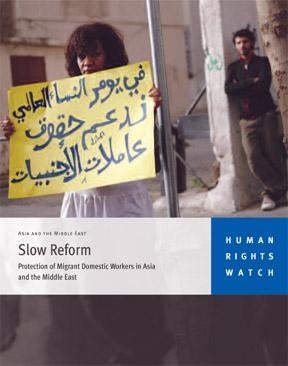
This 103-page report details the involvement of police and local government officials in targeted killings of alleged drug dealers and petty criminals, street children, and others, and describes the lack of any effort by the authorities to investigate the killings and bring those responsible to justice.
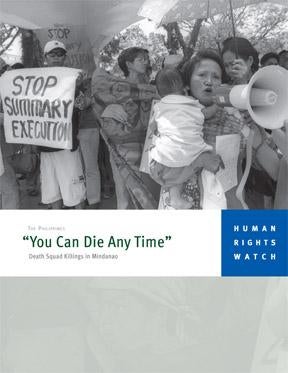
This 133-page report concludes two years of research and is based on 142 interviews with domestic workers, senior government officials, and labor recruiters in Saudi Arabia and labor-sending countries. Saudi households employ an estimated 1.5 million domestic workers, primarily from Indonesia, Sri Lanka, the Philippines, and Nepal. Smaller numbers come from other countries in Africa and Asia. While no reliable statistics exist on the exact number of abuse cases, the Saudi Ministry of Social Affairs and the embassies of labor-sending countries shelter thousands of domestic workers with complaints against their employers or recruiters each year.
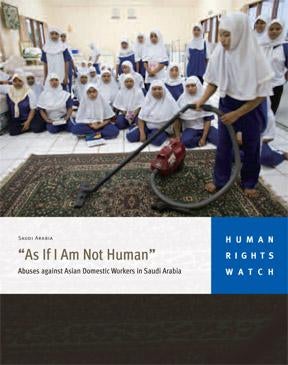
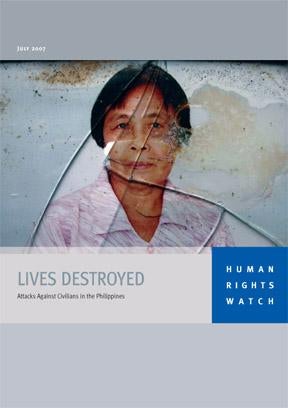
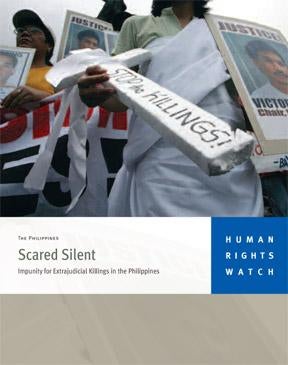
This 93-page report synthesizes Human Rights Watch research since 2001 on abuses against women and child domestic workers originating from or working in El Salvador, Guatemala, Indonesia, Malaysia, Morocco, the Philippines, Saudi Arabia, Singapore, Sri Lanka, Togo, the United Arab Emirates, and the United States.
